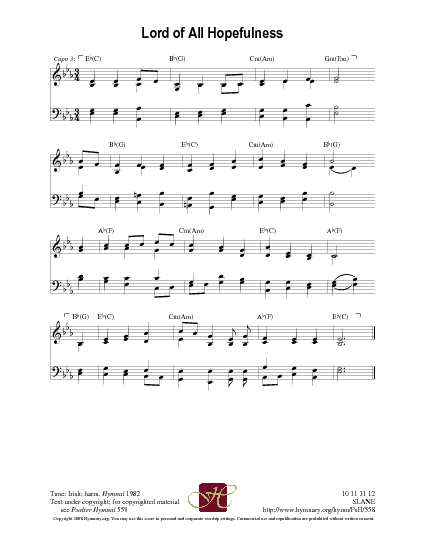Go Ad-Free
If you regularly use Hymnary.org, you might benefit from eliminating ads. Consider buying a Hymnary Pro subscription.
If you regularly use Hymnary.org, you might benefit from eliminating ads. Consider buying a Hymnary Pro subscription.

 Jan Struther, given name: Joyce Torrens-Graham [sic Joyce Anstruther] (b. Westminster, London, England, 1901; d. New York, NY, 1953) wrote many poems and essays under the pen name of Jan Struther (derived from her mother's maiden name, Eva Anstruther). In addition to her pen name, Struther also had the married names of Mrs. Anthony Maxtone Graham and, from a second marriage, Mrs. Adolf Kurt Placzek. During World War II she moved with her children to New York City and remained there until her death. In England she is best known for her novel Mrs. Miniver (1940), which consists of sketches of British family life before World War II. Immensely popular, the book was later made into a movie. Struther also wrote comic and serious poetry, essays,… Go to person page >
Jan Struther, given name: Joyce Torrens-Graham [sic Joyce Anstruther] (b. Westminster, London, England, 1901; d. New York, NY, 1953) wrote many poems and essays under the pen name of Jan Struther (derived from her mother's maiden name, Eva Anstruther). In addition to her pen name, Struther also had the married names of Mrs. Anthony Maxtone Graham and, from a second marriage, Mrs. Adolf Kurt Placzek. During World War II she moved with her children to New York City and remained there until her death. In England she is best known for her novel Mrs. Miniver (1940), which consists of sketches of British family life before World War II. Immensely popular, the book was later made into a movie. Struther also wrote comic and serious poetry, essays,… Go to person page >| First Line: | Lord of all hopefulness, Lord of all joy |
| Title: | Lord of All Hopefulness |
| Author: | Jan Struther (1931) |
| Meter: | 10.11.11.12 |
| Place of Origin: | England |
| Language: | English |
| Copyright: | © Oxford University Press |
| Liturgical Use: | Prayer Songs |
Scripture References:
st. 2 = Ps. 25:5
st. 4 = Ps. 4:8
Joyce Torrens-Graham (b. Westminster, London, England, 1901; d. New York, NY, 1953) wrote many poems and essays under the pen name of Jan Struther (derived from her mother's maiden name, Eva Anstruther). She wrote this text at the request of Percy Dearmer, with whom she prepared the enlarged edition of Songs of Praise (1931). It was first published in that hymnal to the tune SLANE. According to Frank Colquhoun, the text "is a work with a warm human touch, a healthy spiritual tone, and well merits its popularity." It is one of the best examples of the "all-day" hymn texts (dealing with the whole day, from morning to evening).
The four stanzas begin by addressing God in terms of his attributes and then ask for specific blessings for morning, noon, evening, and night. Displaying a consistent literary structure, the text, according to Dearmer, "is indeed a lovely example of the fitting together of thought, words and music."
In addition to her pen name, Struther also had the married names of Mrs. Anthony Maxtone Graham and, from a second marriage, Mrs. Adolf Kurt Placzek. During World War II she moved with her children to New York City and remained there until her death. In England she is best known for her novel Mrs. Miniver (1940), which consists of sketches of British family life before World War II. Immensely popular, the book was later made into a movie. Struther also wrote comic and serious poetry, essays, and short stories, published in Betsinda Dances and Other Poems (1931), Try Anything Twice (1938), The Glass Blower (1941), and, posthumously, The Children's Bells (1957). Songs of Praise (1931) included twelve of her hymn texts.
Liturgical Use:
Occasions of worship that focus on trusting the Lord's guidance; the hymn's "all day" theme also permits a choice of stanzas for specific times.
--Psalter Hymnal Handbook, 1988


 My Starred Hymns
My Starred Hymns